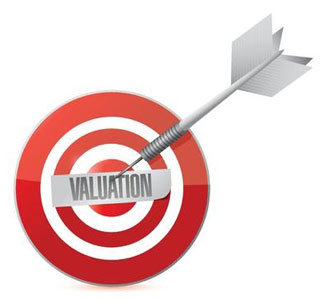The question: An owner-operator wants to sell off his “business good will”. How much is it worth?
Steve’s answer: You must determine your “true net profit” and then negotiate a fair ROI for your buyer.
Hi, Steve,

I know you probably get a lot of these questions, and there is not an exact science to finding this answer, but was hoping you could help me at least get on the right track.
I’m selling my owner/operator carpet cleaning business. My local friendly competitor is very interested, and we have been trying to arrive at a fair market value. He is only interested in purchasing the “good will” or the phone number, client base, website etc. No equipment is included in the sale.
Gross income this year is on track to be about $150,000.00 which is about a 12% increase over last year. My net income is on track to hit about $85,000. (About an 18% increase over last year.) The business is over 15 years old and has a great reputation in my small town of around 35,000 people. About 20% of revenue is from contracted commercial accounts.
Steve, do you have any guidelines for determining the value of the “intangibles” or the good will minus vans and hard assets?
Thanks!
Struggling in the Southwest
Yep, you are correct, Struggling! I do get this question a lot. However, I would gently argue that setting a price for your business really can be an “exact science” IF you do it right. (Now the negotiating on the other hand is based much more on emotions!)
At the end of the day any business is worth what an informed and willing buyer is willing to pay for it! It sounds like your “friendly competitor” is willing… now you just need to inform him!
But first, a few clarifications. You say your net profit is “about $85,000.00” on a gross business income of 130K. By any standards that is great! BUT my guess is as an owner-operator you are including your labor and efforts in this 85,000 dollar net profit. However…
For the purposes of any business valuation you must back out of this 85K “net profit” the cost to have someone produce, sell and/or manage this work. After all, especially in this industry labor is very much a part of overhead and shouldn’t be considered “profit”.
As the owner of this business I also assume you spend a fair bit of time selling, bidding and managing this 150K gross. This time and labor is also not considered net profit. (Even though to you I’m sure it is “fun”.) But…
Any “willing buyer” wants to purchase the “free and clear” income stream your business produces AFTER all the costs of production (including management) are deducted.
So purely hypothetically think what it would cost to hire someone to do the physical work you did this year to produce that 150K gross. I have no idea but let’s just say $40,000.00 total. (This number needs to include the associated costs of hiring a production employee including taxes, Worker’s Comp, etc.)
Now how much should your buyer include for the sales, marketing and administrative costs of producing this $150,000.00 income stream? Once again, I don’t know. You do have the advantage that he already runs a business and the additional work can be folded in fairly simply. However, even so there will be time and effort put into maintaining the new business going forward. So just for grins let’s allot $800.00 per month for the sales and administrative part of this 150K of business for a total of $9,600.00 per year.
So after deducting the costs of producing and managing this income stream your 85K “net profit” is reduced to 35,400.00! OUCH! But cheer up- let’s see if you can add some profit back in! For example…
Most owner-operators run (cough-cough- more or less legally) some of what could be called their “personal overhead” through their business. Vehicles, entertainment, business “travel”, etc. If this applies to you these “discretionary expenses” should be added back into your net profit. (Be prepared to explain and document these to your prospective buyer.)
NOTE: This is why when someone decides to sell their company I advise them to stop running their personal expenses through the business even though their personal tax burden will increase. In the long run they will sell their company for more and reduce the “complications” of the sale.
So let’s assume you ran 6,000 bucks of these more-or-less-personal-expenses (tsk-tsk!) last year through your company. So now your net profit rises back to 41,400.00! WOO-HOO! But now is where it get’s interesting…
The question is what will a buyer pay to capture this $41,400.00 per year of net profit? So this is where we “capitalize” the net by determining what “return on investment” (ROI) your buyer will accept/want.
Remember any small business (even a good one like your company) is much more “management intensive” than a passive investment like stocks, mutual funds or a CD in a bank. And even a business with a long track record will be viewed as “less safe” than other investments. So a savvy buyer will demand a higher ROI to compensate them for these risks. Remember the lower rate of return they will accept is better for you! Let’s look at three possible scenarios:
- Buyer demands a 25% ROI to acquire this $41,400.00 yearly income. Sale price: $165,600.00
- Buyer demands a 20% ROI to acquire this $41,400.00 yearly income. Sale price: $207,000.00
- Buyer accepts a 15% ROI for this $41,400.00 yearly return. Sale price: $276,000.00
There are of course many other factors involved with the sale of an owner-operated business. What percentage of the above gross and net profit can a new owner expect to lose? How closely associated are you with your company? Are your customers “loyal” to you OR the business? Are there prospects to grow your business?
Remember, all of the above (especially the financial calculations) is purely hypothetical and I am NOT a business valuation expert nor a professional financial planner. You should definitely consult professional help before pricing and/or selling your business.
Of course, you should also factor in your tax planning and/or possibly financing the sale of your business. IF your buyer is honest and reliable owner financing may work for you by giving you a good investment income and save on taxes. So consult a professional. Wait… I already said that didn’t I?
HERE is a free Business Pricing Worksheet you can download. And HERE is a Special Report on how to sell your cleaning or restoration business.
Best wishes and let us know how you are doing!
Steve
PS Even with all the numbers and calculations above the purchase of any small service business will largely be based on emotional factors. (Especially a new buyer entering this industry will be “buying your life style”.) So you likely need to “Perfrom a Beauty Make-over” on your company. Download a free “Beauty Makeover” Checklist for a cleaning or restoration business HERE.

